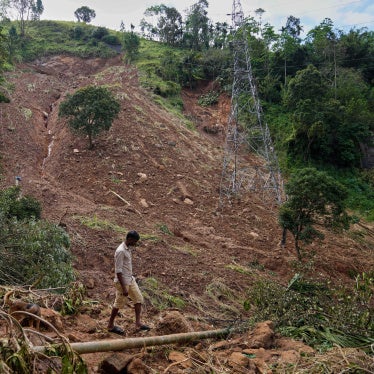Last December, Human Rights Watch reported on serious lead poisoning in the small indigenous community of Klity Creek in western Thailand, caused by a badly regulated and now defunct lead processing factory upstream. In 2012, we reported on about 150 tanneries in the Hazaribagh neighborhood of Bangladesh’s capital, Dhaka, where residents complain of illnesses such as fevers, skin diseases, respiratory problems, and diarrhea, caused by extreme tannery pollution of air, water, and soil.
What is common to these suffering communities is lack of government accountability. In both cases, the respective governments are ignoring orders from the highest courts in their respective lands to clean up the communities and prevent people from suffering further exposure to toxic waste. When governments can pick and choose what laws to enforce, or whether to abide by court decisions, they leave vulnerable people without protection or redress—allowing toxic pollution to continue to make people sick in often debilitating ways.
Earth Day – celebrated every April 22 – is an opportunity to reflect upon the successes and failures in protecting the environment and the humans living within it. In many cases, successes stem from strong laws diligently applied. Yet far too often failures stem not from lack of written law but lack of enforcement, as officials deem environmental and labor regulations to be interfering with private sector interests and burdensome to economic growth. Violations of the rights to life, to health, and to safe food and water are among the results.
Environmental degradation often disproportionately impacts marginalized and discriminated against populations – including ethnic minorities, the urban poor, women and children, and the disabled – who frequently don’t have access to legal services to petition governments or hold them to account. People exposed to hazardous substances and wastes are often unable to even obtain accurate and complete information on the substances they are exposed to and the health risks those substances pose.
Environmental activists press for accountability, yet they often face violence and harassment. A Global Witness report released Monday identifies at least 116 environmental activists killed in 2014, most amid disputes over dams, mining, and agri-business. Such killings are the most lethal means to silence defenders, but threats, arbitrary arrests and detention, and harassment through the courts can also have chilling effects.
This Earth Day, millions of people around the world will reflect on the beauty of nature and our interdependence with this fragile planet. Spare a moment to also remember that the fight to protect the environment is often a fight for accountability for rights abuses.









